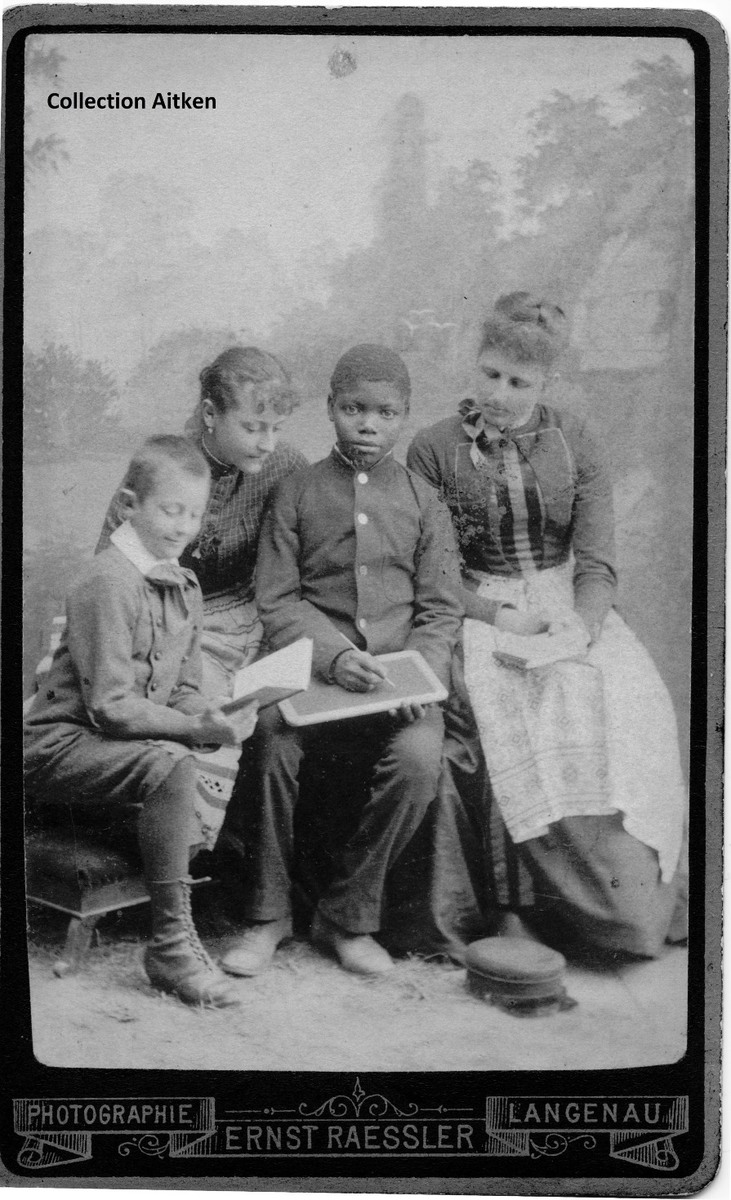Source

Source:
Postcard (c. 1888). Collection Aitken.
The image and this
analysis were provided by Robbie Aitken of the
Black Central
Europe project, https://blackcentraleurope.com/sources/1850-1914/a-cameroonian-apprentice-in-langenau-ca-1888/
The image shows a studio shot of the young Duala Dinne Dumbe (Ndine Dumbe) from Cameroon, surrounded by members of his German host family. Dumbe spent over two years in the small town of Langenau (now in Baden-Württemberg) with the wealthy Burger family; he was one of three Cameroonians to do so. There he undertook an apprenticeship as a cook and was taught to read and write German. In line with European ideas of the civilizing mission, Dumbe, like many West African youngsters who arrived in Germany for educational purposes or to undertake an apprenticeship, also received moral and religious instruction. He was eventually baptized in Langenau, taking on the name Heinrich Eugen Ndine. When he returned to Cameroon in 1890 he found short-term employment in Eugen Zintgraff’s expedition of 1890 to the Cameroonian hinterland, working as a cook. Like many returnees, however, he found re-acculturation into the rigid racial hierarchy of colonial society in Cameroon difficult. The composition of the image emphasizes notions of the civilizing mission. While Dumbe looks directly at the camera, chalkboard and chalk in hand, two of the female members of the family who are instructing him look over his work. The youngest member of the Burger family, to whom Dumbe developed a close bond, reads aloud for Dumbe to follow.

Source:
Postcard (c. 1888). Collection Aitken.
The image and this
analysis were provided by Robbie Aitken of the
Black Central
Europe project, https://blackcentraleurope.com/sources/1850-1914/a-cameroonian-apprentice-in-langenau-ca-1888/